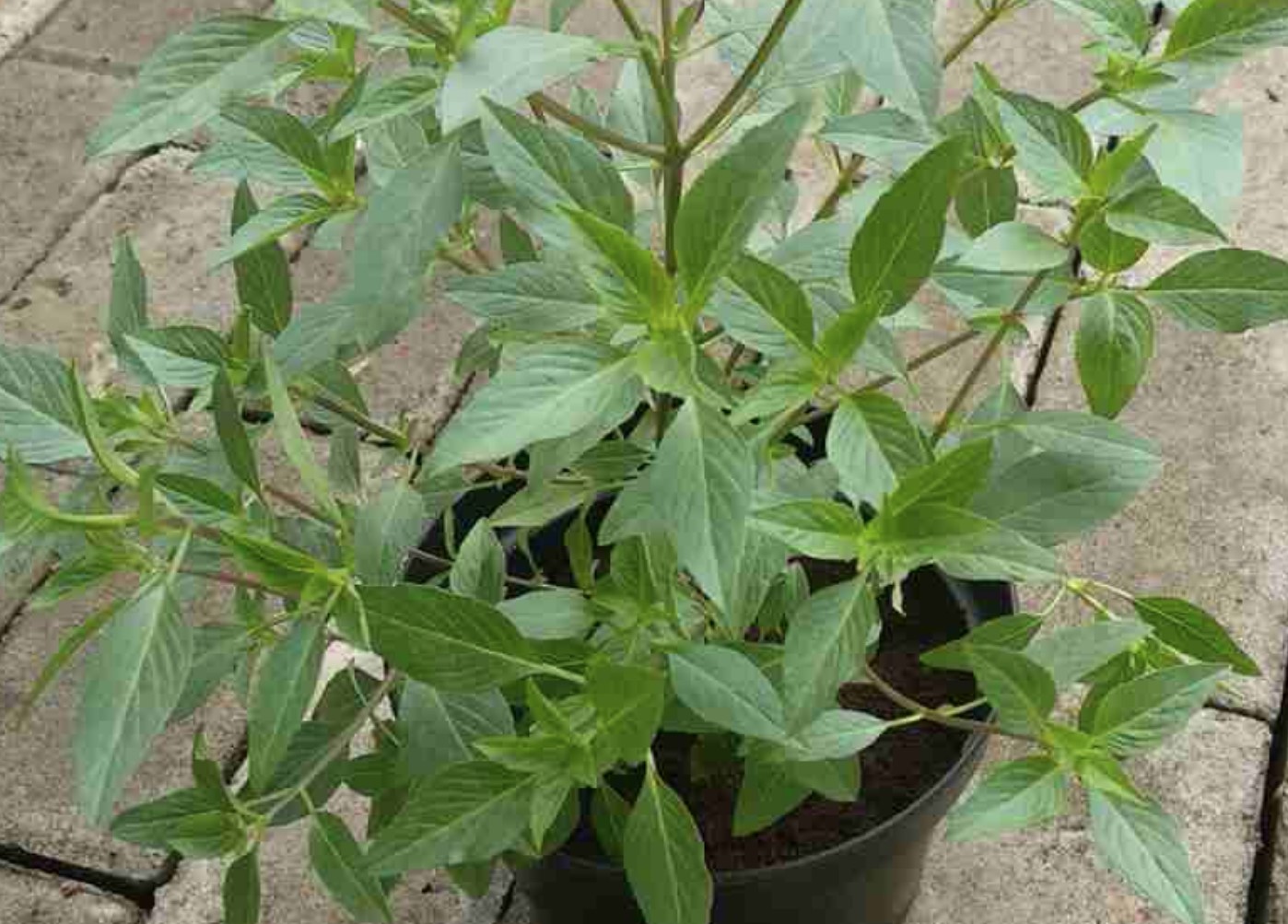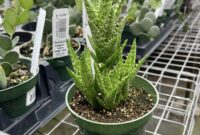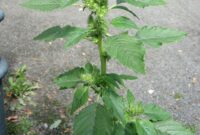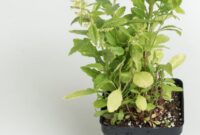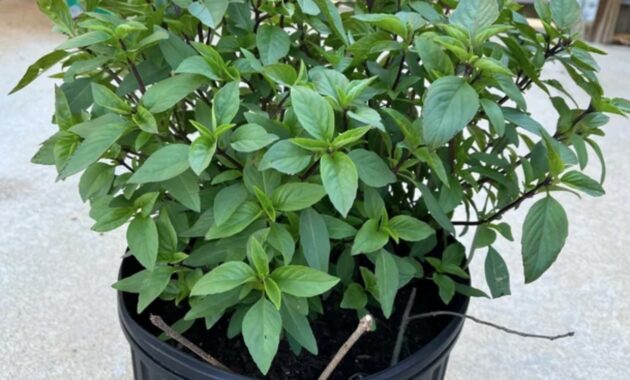
What is Lemon Basil?
Lemon basil is a delightful herb with a zesty, citrusy aroma and flavor. It’s a hybrid of sweet basil and lemon verbena, combining the best of both worlds. This versatile herb can be used in various culinary applications, from savory dishes to refreshing beverages.
Benefits of Lemon Basil
- Culinary Uses: Lemon basil adds a bright, citrusy flavor to a wide range of dishes, including pasta sauces, soups, salads, and marinades. Its unique taste profile can elevate your cooking to new heights.
- Aromatic Properties: The fragrant leaves of lemon basil can be used to make fragrant teas or potpourri.
- Potential Health Benefits: While more research is needed, some studies suggest that basil, in general, may have antioxidant and anti-inflammatory properties.
How to Grow Lemon Basil
Growing lemon basil is relatively easy, even for beginners. Here’s a simple guide:
- Choose the Right Location: Lemon basil thrives in warm, sunny locations. Ensure it receives at least 6-8 hours of direct sunlight daily.
- Prepare the Soil: Plant lemon basil in well-draining soil rich in organic matter. You can use a high-quality potting mix for container gardening.
- Start from Seeds or Seedlings: You can start lemon basil from seeds or purchase seedlings from a nursery.
- Planting: Plant the seedlings or seeds in the prepared soil, spacing them about 12-18 inches apart.
- Watering: Water your lemon basil regularly, keeping the soil consistently moist but not waterlogged.
- Fertilizing: Feed your plants with a balanced liquid fertilizer every 2-3 weeks during the growing season.
- Harvesting: Harvest the leaves as needed, cutting them with clean scissors or a sharp knife.
Lemon Basil Plant for Sale
Lemon basil plants are widely available at nurseries, garden centers, and online retailers. When purchasing, look for healthy plants with vibrant green leaves and a strong lemon scent.
Lemon Basil Uses in Cooking
Lemon basil is a versatile herb that can be used in various culinary applications:
- Herbs: Fresh lemon basil leaves can be used as a garnish or added to salads, soups, and sauces.
- Infused Oils: Create flavorful infused oils by steeping lemon basil leaves in olive oil.
- Pestos: Make a zesty lemon basil pesto by blending fresh leaves with pine nuts, Parmesan cheese, garlic, and olive oil.
- Cocktails: Add a refreshing twist to your cocktails by muddling lemon basil leaves with other ingredients.
Lemon Basil Indoor Plant
Lemon basil can be grown indoors in pots, making it a great addition to your kitchen windowsill. Ensure it receives ample sunlight and water it regularly.
Lemon Basil Leaves
Lemon basil leaves are the primary part of the plant used for culinary and medicinal purposes. They are characterized by their bright green color, serrated edges, and strong lemon scent.
Lemon Basil Plant Varieties
Several lemon basil varieties are available, each with unique characteristics:
- Cinnamon Basil: This variety has a spicy, cinnamon-like flavor in addition to the lemon scent.
- Dark Opal Basil: Known for its dark purple leaves, this variety offers a slightly sweeter flavor than traditional lemon basil.
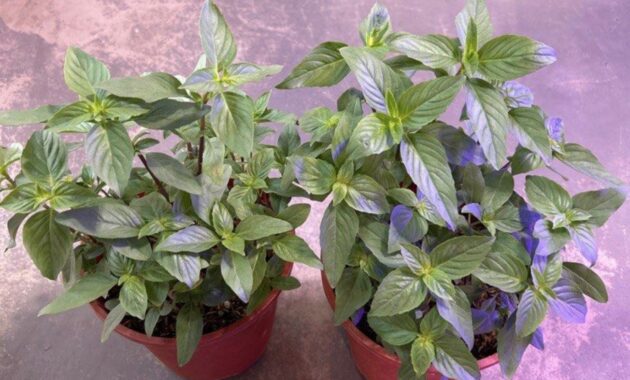
Lemon Basil Growing Tips
- Pinch Back: Regularly pinch back the tips of your lemon basil plants to encourage bushier growth and prevent legginess.
- Protect from Frost: Lemon basil is sensitive to frost, so protect your plants during cold weather.
- Harvest Regularly: Regular harvesting will promote continuous growth and prevent the plant from flowering too early.
Lemon Basil Plant Companion Plants
Lemon basil can be planted alongside other herbs and vegetables that benefit from its aromatic properties. Good companion plants include tomatoes, peppers, and other herbs like rosemary and thyme.
Lemon Basil Herb
Lemon basil is a fragrant herb that adds a burst of citrus flavor to dishes. It’s a great addition to any herb garden or kitchen windowsill.
Lemon Basil Plant Propagation
Lemon basil can be propagated through stem cuttings. Simply cut a 6-inch stem, remove the lower leaves, and dip the cut end in rooting hormone. Plant the cutting in a pot of well-draining soil and keep it moist.
Lemon Basil Recipes
There are countless recipes that feature lemon basil. Here are a few ideas to get you started:
- Lemon Basil Pasta: Toss cooked pasta with a simple sauce of olive oil, garlic, lemon juice, and fresh lemon basil leaves.
- Lemon Basil Grilled Chicken: Marinate chicken breasts in a mixture of olive oil, lemon juice, garlic, and lemon basil leaves before grilling.
Lemon Basil Plant Seeds
Lemon basil seeds are small and black. They can be sown directly into the garden or started indoors in seed trays. When starting seeds indoors, provide them with plenty of light and warmth.
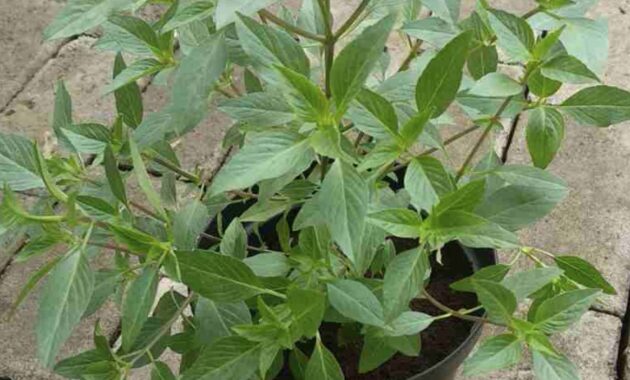
Lemon Basil Plant Pests
Lemon basil plants are susceptible to common pests like aphids, whiteflies, and spider mites. To control these pests, use insecticidal soap or neem oil.
Conclusion
Lemon basil is a delightful herb that can add a burst of flavor to your dishes. With its easy-to-grow nature and numerous benefits, it’s a worthwhile addition to any garden or kitchen. By following the tips and tricks outlined in this guide, you can successfully grow and enjoy this versatile herb.
FAQs
- Can I use lemon basil essential oil in cooking?
While lemon basil essential oil is highly concentrated, it can be used in small amounts for flavoring foods. However, it’s important to use it with caution, as excessive consumption can be harmful. - How long does it take for lemon basil to grow from seed?
Lemon basil seeds typically germinate within 7-10 days. Once germinated, it takes about 4-6 weeks for the plants to be ready for harvesting. - Can I overwater lemon basil?
Overwatering lemon basil can lead to root rot. It’s better to underwater than overwater. Allow the soil to dry slightly between waterings. - Can I freeze lemon basil?
Yes, you can freeze lemon basil. To freeze, finely chop the leaves and place them in an airtight container. Freeze for up to 6 months. - What are some other herbs that pair well with lemon basil?
Lemon basil pairs well with many herbs, including oregano, thyme, rosemary, and mint.
